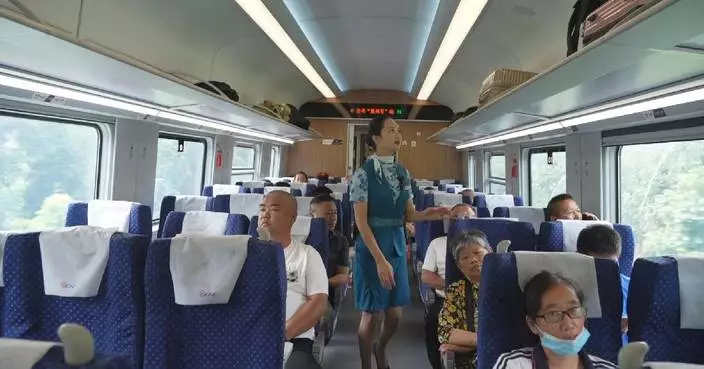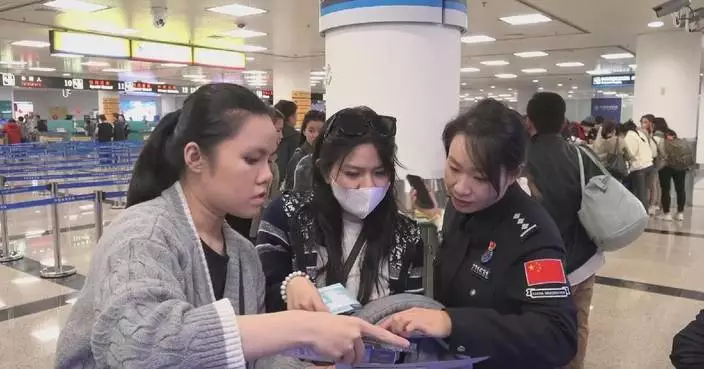China leads with the most top 100 science and technology clusters in the world for the second consecutive year, the World Intellectual Property Organization (WIPO) reported Tuesday.
The report showed that China has 26 of the world's top 100 science and technology clusters, up from 24 last year. The United States is next with 20, Germany with eight, and India and South Korea with four each.
According to the report, seven of the top 10 science and technology clusters in the world are in Asia and three are in the United States. Japan's Tokyo-Yokohama city cluster topped the list, followed by China's Shenzhen-Hong Kong-Guangzhou city cluster. China's Beijing rose to third place. In sixth place, San Jose–San Francisco, California is the leading U.S. cluster.
The WIPO examines the density of patent-filing and articles published in scientific research journals to identify and rank the leading geographical areas in global sci-tech invention and innovation activities. For the ranking this year, the Shenzhen-Hong Kong-Guangzhou cluster filed 2,303 patent cooperation treaty applications per 1 million inhabitants from 2019 to 2023 and published 3,469 scientific articles per 1 million inhabitants from 2018 to 2022, both increasing from the previous cycles.
Daren Tang, WIPO's director general, said that science and technology clusters are the important basis of national innovation ecosystems, which are not only thriving in developed countries, but also gradually rising in emerging economies. He said WIPO will continue to help these clusters to use IP to translate promising research into tangible, real-world solutions.

China has most top 100 science and tech clusters globally: WIPO

China has most top 100 science and tech clusters globally: WIPO
China's economic stimulus policies are gradually producing promising results in their targeted areas from the housing market to local government debt and consumer spending.
In terms of the real estate sector, policy measures include easing or removing purchase restrictions in certain cities, as well as lowering mortgage rates and down payment requirements.
Officials say the housing market has shown positive signs in recent months, with increased home viewings and rising sales volume in many cities.
In November, Suzhou City, east China's Jiangsu Province, saw over 10,000 new homes being sold, a 17.5 percent increase compared to last year, and a 27.6 percent jump compared to the previous month.
"The market is obviously on an upward trajectory, with the transition volume growing and prices stabilizing and rising. As the market confidence bounces back, both sales and prices are expected to climb further," said Tang Wei, vice president of Suzhou Real Estate Brokerage Association.
Chinese officials said that in October and November, the area of newly built commercial housing covered by purchasing contracts already signed nationwide saw year-on-year and month-on-month growth for two consecutive months.
For years, land sales have been a major source of revenue for many local governments in China. But the real estate market's struggles have weighed on land sales, putting pressure on some local governments to manage their debts.
The challenge with local debt is that it often carries high interest rates and lacks transparency, which poses extra risks if not carefully managed.
In November, China announced a 10 trillion yuan (around 1.4 U.S. dollar trillion) debt package to ease local government financing strains.
It allows local governments to borrow more over the next three years to restructure their hidden debts. They can also use 4 trillion yuan (548.2 billion U.S. dollars) from previously approved funds over the next five years for the same purpose.
Officials say they believe this will help local governments resolve debt issues and free up resources for areas that impact people's lives, such as boosting consumption.
From home appliances and consumer electronics to cars, local governments across China are offering financial incentives to encourage consumers to trade in old goods for discounts on new ones.
By replacing an old vehicle, consumers could receive a subsidy of up to 2,100 U.S. dollars for a petrol car or 2,800 U.S. dollars for an electric one. This year, nationwide vehicle trade-ins surpassed 5 million cars.
Similar subsidies are also available for home appliances, boosting sales in shopping malls across China. Data from the Ministry of Commerce shows that since the policy's entry into effect, consumers have purchased nearly 50 million units across eight categories of household appliances.
"In addition to government subsidies, major home appliance companies are offering their own discounts in response to the call of the authorities, which helps enhance their brand value," said a consumer surnamed Chen.
From housing and debt to consumption, China's government is using targeted stimulus policies to tackle economic challenges.

Economic stimulus policies yielding promising results











